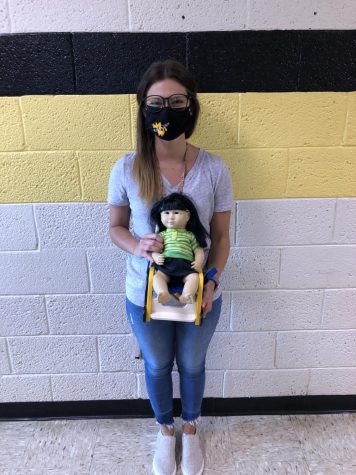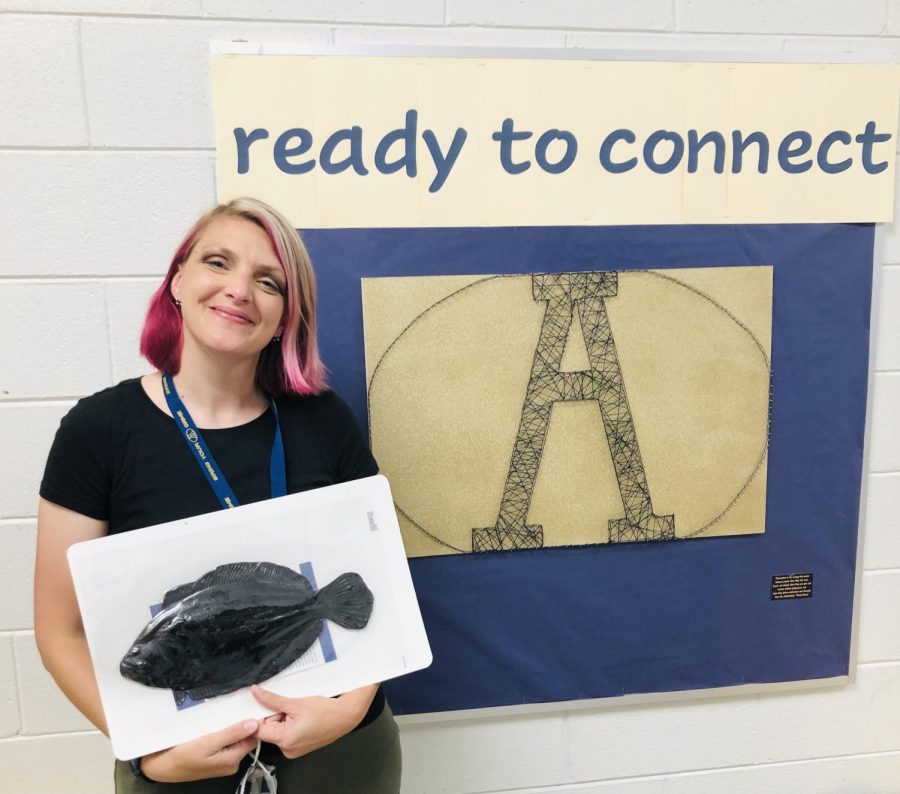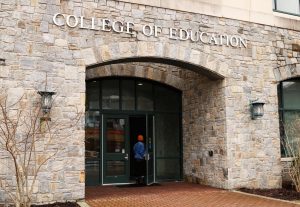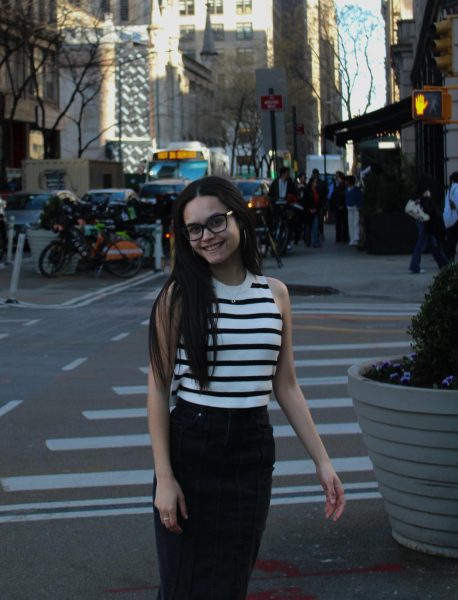Reich College of Education partners with local schools, awards grant moneys
Samantha Strathy, an art teacher at Alexander Central High School, showing off a sample of props purchased for her grant project “World Tour Studio Art Outreach: Learning Through Intentional Teaching.”
October 3, 2021
This year, the Reich College of Education Public School Partnership Mini-Grants Committee has awarded mini-grants to education workers who pitch projects that, according to their website, “helped make an impact in area schools.”
Established in 1987, the Public School Partnership is a program that brings together App State and different P-12 public schools to work with one another to help improve education.
“What we try to do at the Public School Partnership is provide as many resources, professional development, leadership opportunities and collaborative engagement as possible to our public school partners,” said Betsy Rosenbalm, director of Public School Partnership.
Rosenbalm said that because of COVID-19, there were fewer internships and class observing opportunities for students majoring in education, so the process of coming up with projects for the mini-grant program allowed students to experience working in the classroom and alongside public school teachers.
Projects seeking a grant should be focused on the preparation or development of those practicing in education fields, according to their website. The committee gives funds to selected concepts.

Since March, the committee has awarded 23 projects mini-grants.
Projects that were chosen this summer were “based around equity,” Rosenbalm said.
The committee awarded approximately $17,000 last school year. Some of the awarded grant money has been used through the following:
- $981.40 for sensory tools in Watauga County. These are toys that are meant to relieve stress and anxiety and enhance student focus.
- $515.07 for promoting equality and diversity in media and guidance in Wilkes County.
- $500 for an inclusive outdoor play area and learning environment in Wilkes County.
“I was very excited [to receive a grant]. Most of the stuff I have I’ve paid for out of pocket, and I have limited supplies, so I was very excited to be able to now provide resources for my students,” said Samantha Phifer, a guidance counselor at Mountain View Elementary School.
Phifer’s project promoted equality and diversity in media and guidance in rural schools. She utilized the money to buy dolls with different disabilities and races for the students to play with and other materials that she could use when teaching guidance.
“The goal of this project was to show unity in the club’s mission to create acceptance of all people while creating more awareness of equity, diversity and inclusion. This grant definitely allowed for this to happen,” said Beth Hinshaw, a social worker at South Caldwell High School.
Hinshaw’s project was to get t-shirts for a school club that have the words “OUR WORLD” on front and “One People United” on the back. The purpose of these shirts was “to be worn by all group members and staff to signify unity and that they are a ‘safe’ person for all students to talk to if they are having issues,” Hinshaw said.
To receive a grant, a group must follow all of the guidelines set forth by the committee.
Submissions must include education faculty, public school teachers or administration and a student teacher unless there are none present during the creation process of the project.
“We encourage teachers in classrooms in the P-12 world to reach out and collaborate with someone here on our campus; we like to fund those kinds of projects,” Rosenbalm said.
The maximum amount of money a group can ask for is $1000.
“My overall experience was great. I heard back pretty quickly,” Phifer said.
The next season’s application deadline is Feb. 25. Rosenbalm said the theme for the upcoming application season is innovations for equity.













